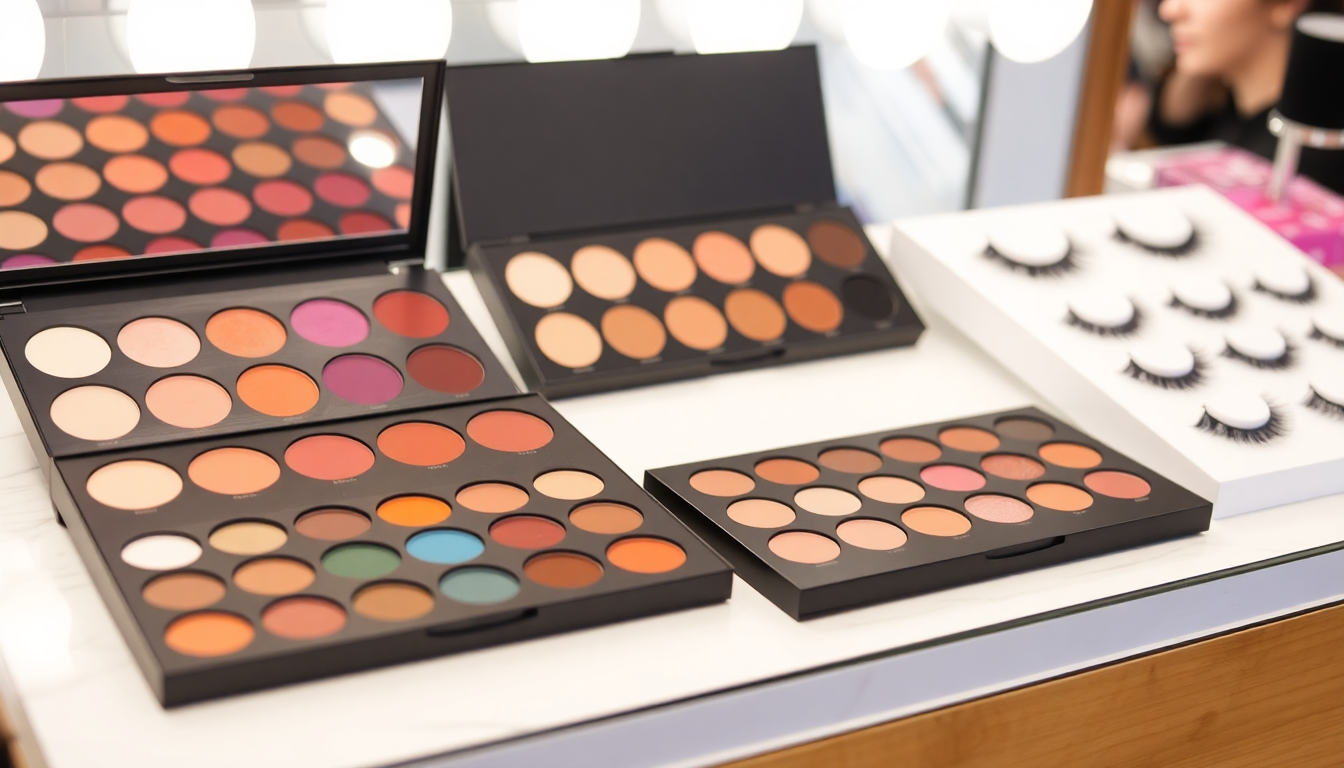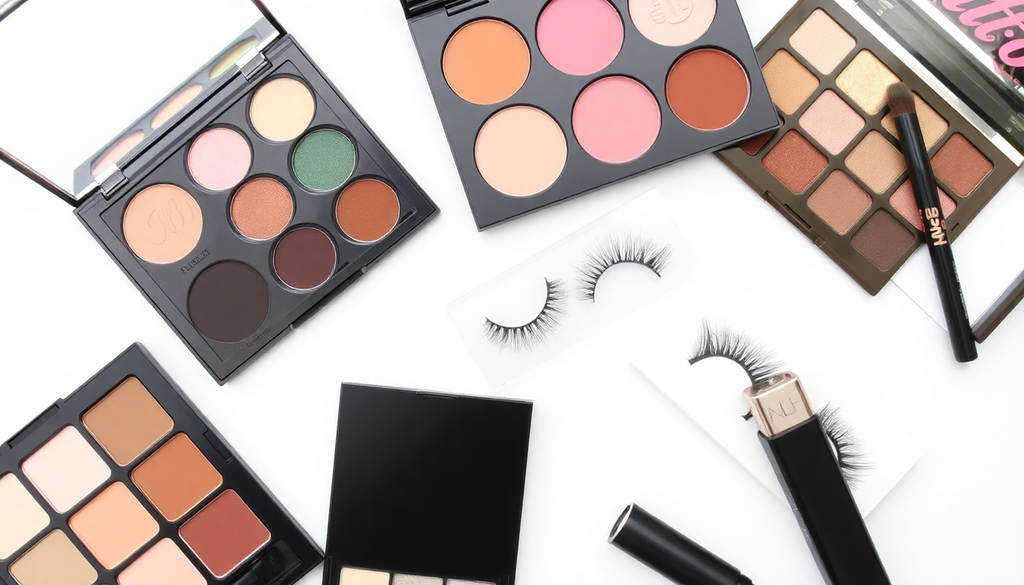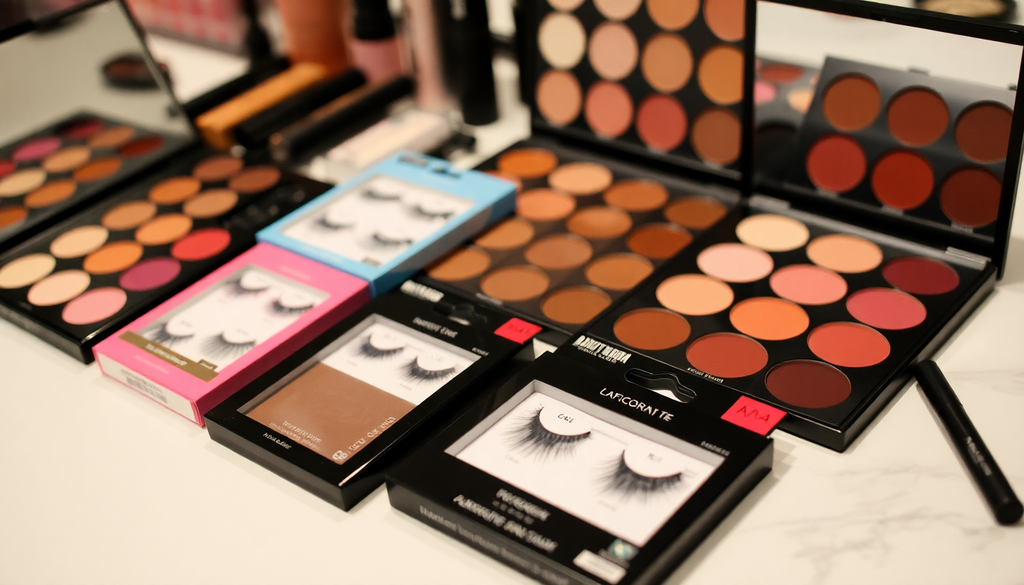
Navigating the Makeup Business Landscape: A Comprehensive Guide to Launching Your Private Label Brand with Custom Eyeshadow Palettes and Magnetic Lashes in 2025
Introduction
In the dynamic world of cosmetics, launching a private label makeup brand has become increasingly popular, especially in 2025. With the rise of social media influencers and the growing demand for unique beauty products, entrepreneurs have a golden opportunity to carve their niche in this competitive market. This comprehensive guide will help you navigate the landscape of the makeup business, focusing on custom eyeshadow palettes and magnetic lashes. We will cover essential topics such as cosmetics labeling in different countries, import policies, necessary certifications, setting up an online store, and effective marketing strategies.
Understanding the Cosmetic Business Landscape
The cosmetic industry is vast and competitive. To stand out, you need to understand the key components involved in launching your brand:
- Market Research: Understanding your target audience, their preferences, and current trends is crucial. Conduct surveys, focus groups, and competitor analysis to gather valuable insights.
- Product Development: Developing high-quality products is essential for success. Focus on unique formulations, packaging, and branding that resonate with your audience.
- Brand Positioning: Define your brand identity, mission, and values. Position your brand to appeal to your target market effectively.
- Compliance and Regulations: Familiarize yourself with the legal requirements for cosmetics in your target markets to avoid potential pitfalls.
Cosmetics Labeling Information
Each country has specific regulations regarding cosmetic labeling, which must be strictly followed to ensure compliance and consumer safety. Here’s a brief overview of some major markets:
- United States: The FDA regulates cosmetics, requiring labels to include the product name, net weight, ingredient list, and any necessary warnings. It's essential to be aware of the rules regarding claims made on the label (e.g., "hypoallergenic" or "non-comedogenic").
- European Union: EU regulations mandate compliance with the Cosmetics Regulation (EC) No 1223/2009, which includes detailed labeling requirements and safety assessments. All ingredients must be listed in descending order of weight, and the product must have a designated Responsible Person in the EU.
- Canada: Cosmetic products must adhere to the Cosmetic Regulations under the Food and Drugs Act, including bilingual labeling (English and French) and a complete ingredient list. Additionally, certain claims require substantiation.
- Australia: The NICNAS (National Industrial Chemicals Notification and Assessment Scheme) oversees cosmetic regulation, requiring proper ingredient disclosure and compliance with safety standards.
Import Policies and Regulations
Understanding import policies is crucial for sourcing your products and materials. Here are some key considerations:
- Research Tariffs and Duties: Import tariffs can significantly impact your costs. Research the tariffs applicable to the ingredients or products you plan to import into your target market.
- Compliance with Local Regulations: Ensure you are aware of the local regulations regarding the importation of cosmetics. This may include customs inspections and documentation submissions.
- Work with a Customs Broker: To facilitate smooth import processes, consider partnering with a customs broker who can help navigate the complexities of international trade.
- Consider Sourcing Locally: If possible, sourcing ingredients or packaging locally can reduce shipping costs and lead times while supporting the local economy.
Necessary Certifications
Depending on your target market, certain certifications may be required to ensure product safety and quality:
- Good Manufacturing Practices (GMP): This certification ensures that products are consistently produced and controlled according to quality standards, minimizing risks involved in pharmaceutical production.
- Safety Assessments: Required in many jurisdictions, these assessments help demonstrate that products are safe for consumer use. This process may involve toxicological assessments and clinical trials.
- Vegan and Cruelty-Free Certifications: If your brand promotes ethical practices, obtaining these certifications can enhance your brand appeal and attract a wider audience.
- ISO Certifications: International Organization for Standardization (ISO) certifications can bolster your credibility and assure consumers of your commitment to quality.
Setting Up Your Makeup Online Store
Launching an online store is a vital step in reaching your target audience and selling your products effectively. Here are key steps to consider:
- Choose an E-commerce Platform: Select a platform that fits your business needs (e.g., Shopify, WooCommerce, BigCommerce). Make sure it supports the features you require, such as inventory management and customer relationship tools.
- Design an Attractive and User-Friendly Website: Your website should reflect your brand identity. Invest in professional web design that prioritizes user experience, making navigation easy and intuitive.
- Implement Secure Payment Gateways: Ensure your online store has secure payment options to build customer trust. Consider multiple payment methods, including credit cards, PayPal, and digital wallets.
- Optimize for Mobile: With a significant number of consumers shopping on mobile devices, ensure your site is mobile-friendly to provide a seamless shopping experience.
- Utilize High-Quality Product Images: Invest in professional photography to showcase your products. High-quality images can significantly impact purchasing decisions.
Marketing Your Makeup Brand
Effective marketing strategies are essential for brand recognition and sales. Here are some proven tactics to promote your brand:
- Social Media Marketing: Utilize platforms like Instagram, TikTok, and Facebook to showcase your products. Create engaging content, including tutorials and behind-the-scenes looks, to connect with your audience.
- Influencer Collaborations: Partner with beauty influencers to reach a broader audience. Choose influencers who align with your brand values and have an engaged following.
- Email Marketing: Build an email list to keep customers informed about new launches, promotions, and exclusive offers. Use personalized campaigns to enhance customer engagement.
- Content Marketing: Create engaging content, such as tutorials, beauty tips, and blog posts, to attract potential customers and establish your brand as an authority in the beauty industry.
- SEO Optimization: Optimize your website and content for search engines to increase visibility. Use relevant keywords, meta descriptions, and alt tags to improve your rankings.
- Online Advertising: Consider using paid advertising on social media and search engines to drive traffic to your online store. Target specific demographics to maximize your ROI.
Building a Strong Brand Identity
Establishing a strong brand identity is essential for standing out in the crowded cosmetics market. Here are some steps to create a compelling brand:
- Define Your Unique Selling Proposition (USP): Identify what makes your brand unique. This could be your product formulation, packaging, or the values your brand stands for.
- Create a Memorable Logo: Invest in professional logo design to create a visual representation of your brand. Your logo should be simple, memorable, and reflective of your brand's personality.
- Develop a Consistent Brand Voice: Your brand voice should be consistent across all platforms and communications. Whether it's formal, playful, or informative, ensure it resonates with your target audience.
- Engage with Your Community: Build a loyal customer base by engaging with your audience through social media, responding to comments, and creating a community around your brand.
Customer Service and Retention
Providing excellent customer service is vital for building a loyal customer base. Here are strategies to enhance customer satisfaction:
- Responsive Support: Offer multiple channels for customer support, including email, live chat, and social media. Respond promptly to inquiries and concerns.
- Easy Returns and Refunds: Implement a straightforward return policy to build trust with customers. Ensure they feel secure in their purchases.
- Loyalty Programs: Consider creating a loyalty program to reward repeat customers. Points systems or discounts can encourage customer retention.
- Solicit Feedback: Regularly ask for customer feedback to understand their preferences and improve your offerings. Use surveys and reviews to gather insights.
Conclusion
Launching a private label makeup brand in 2025 can be a rewarding venture with the right knowledge and preparation. By understanding the cosmetics landscape, compliance regulations, effective marketing strategies, and the importance of brand identity and customer service, you can successfully navigate the makeup business and establish a brand that resonates with consumers. Remember, persistence and adaptability are key to thriving in this ever-evolving industry. Embrace the journey, learn from your experiences, and watch your brand flourish in the vibrant world of cosmetics.
Partager

The Essential Guide to Launching Your Makeup Brand: From Private Label Eyeshadow Palettes to Magnetic Lashes in 2025



